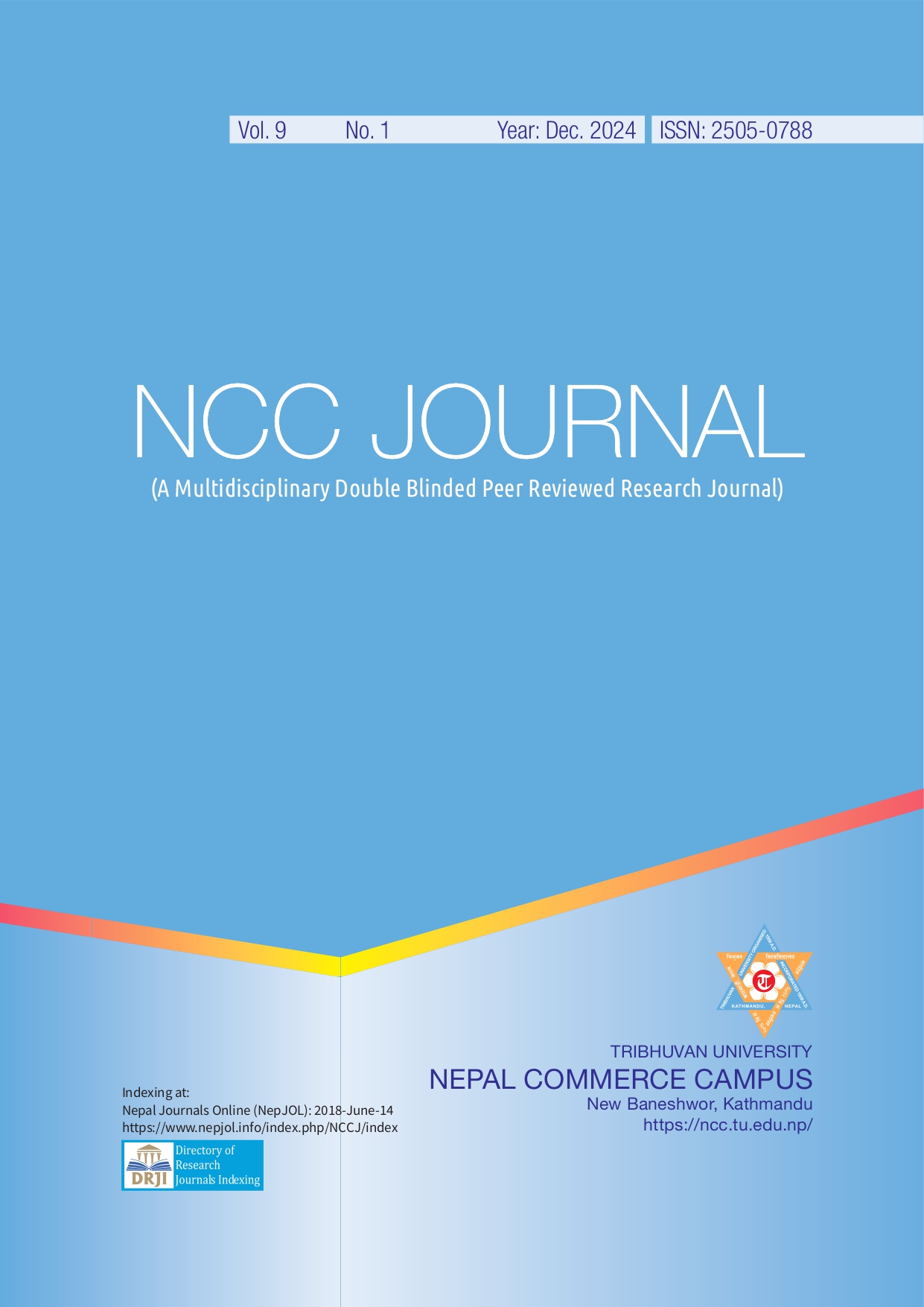Role of Statistics in Artificial Intelligence Technology
DOI:
https://doi.org/10.3126/nccj.v9i1.72262Keywords:
Artificial Intelligence, Data Science, Machine Learning, StatisticsAbstract
Artificial intelligence (AI) research and applications have sparked a broad scientific, economic, social, and political debate. Statistical approaches and techniques are fundamental to AI because they allow robots to learn from data and make intelligent decisions. It's possible even to view statistics as a fundamental component of AI. Statistics is an ideal partner for other disciplines in teaching, research, and practice because of its specialized knowledge of data evaluation, which begins with the correct phrasing of the research question and continues through a study design stage to analysis and interpretation of the results. This work aims to demonstrate how statistical methodology is relevant to the development of AI. In terms of methodological development, planning, research design, evaluation of data quality and collection, distinction of causation and relationships, and evaluation of result uncertainty, we talk about the contributions of statistics to the field of artificial intelligence. This study thoroughly analyzes the crucial role statistics play in AI, demonstrating the numerous applications of statistical ideas like probability, regression, classification, and clustering. The essay highlights the value of statistical analysis in handling uncertainty, making predictions, and training AI models all of which improve the efficiency and precision of AI systems.
Downloads
Downloads
Published
How to Cite
Issue
Section
License

This work is licensed under a Creative Commons Attribution-NonCommercial 4.0 International License.
© Nepal Commerce Campus, Tribhuvan University
CC BY-NC: This license enables reusers to distribute, remix, adapt, and build upon the material in any medium or format for noncommercial purposes only, and only so long as attribution is given to the creator.




